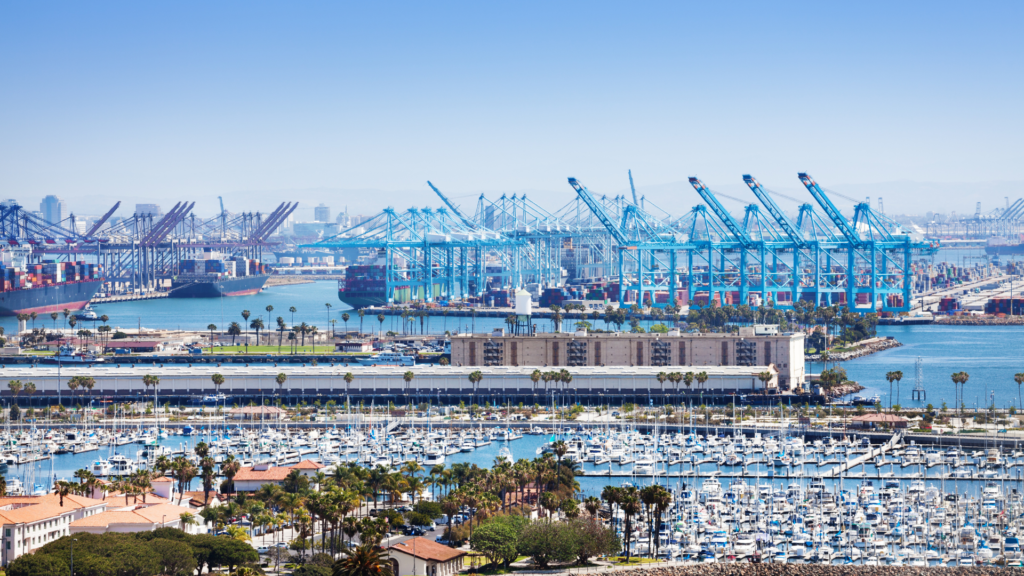Jordan Trucking Strike, Retail Import Decline, Unions, and Rail Instability.
Your weekly round-up of supply chain news.
Unmet Demands
Truckers across Jordan are on strike because of recent increases in fuel prices and because of a failure to raise the minimum transportation wage for four consecutive years.
Truck owners and drivers are refusing to transport cargo from the ports of Aqaba and Mafraq to their final destinations.
While an agreement was reached between the Transport Regulatory Authority and the Syndicate of Jordanian Truck Owners, truck drivers are claiming they were not consulted on the matter.
Chairman of the Syndicate of Jordanian Truck Owners Mohammad Al-Daoud stated that wages were determined based on the transportation wage regulations from the Ministry of Industry and Trade.
Drivers are demanding to raise the minimum wage by no less than 40% and to lower fuel prices.
Decline in Imports
US retailers are forecasting a continued decline in imports into late spring. Numbers have been significantly lower than usual because of the earlier-than-usual peak holiday season.
“The volume of imported container cargo at the ports we cover has declined, and the next six months will see further declines to a level not seen for some time,” Ben Hackett, founder of Hackett Associates, said in the December Global Port Tracker (GPT).
Re-Routing
West Coast port congestion is barely an issue at this point thanks to the ongoing and seemingly unresolvable contract negotiations. Retailers are rightfully concerned about when an agreement will be made and how it’ll impact their cargo routes going forward.
“It’s time to settle on a labor contract for West Coast ports and address other supply chain issues that remain so the lull doesn’t become the calm before a storm,” stated Jonathan Gold, the NRF’s vice president for supply chain and customs policy.
Confidence Crushed
Chronic service disruptions have caused US shippers to lose faith in moving their freight by rail and creating a more robust network is key to rebuilding that trust according to the CEO of Norfolk Southern Railway.
During the early days of the pandemic, NS furloughed thousands of employees. It’s been proven difficult to rehire and retain the necessary employees to handle the influx of intermodal volumes.
“For decades, railroads have had cycles of service disruption. They have tended to occur every three to four years due to causes that are easy to categorize in hindsight, but hard to predict,” Alan Shaw, CEO of Norfolk Southern said. “These disruptions have eroded the confidence customers need to have if they are going to structurally rely on rail instead of highways. A company can’t expect to provide sustainable growth if it provides its customers with a lousy service product every three years.”
The NS has already taken steps to improve its scheduling. They’ll also be putting all ocean containers into stacks to increase terminal capacity and accommodate growth.
A Message to Investors
“When time came to rebuild our ranks and recall furloughed employees [in 2020], we couldn't get enough people, and frankly, two years later, right now, we still have about 25 percent of our crew locations that are understaffed,” Shaw acknowledged. “We've made a lot of progress in our service product, but we're not where we need to be yet. For America's freight railroads, resilience has a deeper importance than just the ability to handle future disruptions, like the pandemic. We're students of history.”
Annie Adams, chief transformation officer for NS, said that they plan on strategizing to keep employees by training current employees to work in other areas of the company instead of furloughing 5% of their workforce.
“The goal in all of these scenarios is to ensure that when business rebounds, as it always does, we’re positioned to quickly redeploy a skilled, engaged, and productive workforce so that [shippers] have the confidence to tightly integrate us into their supply chains.” shaw told investors.
Especially with the current developments regarding Biden forcing unions to accept the negotiated contracts, restoring strong relationships between rail operators and unions will be key in the coming months.





